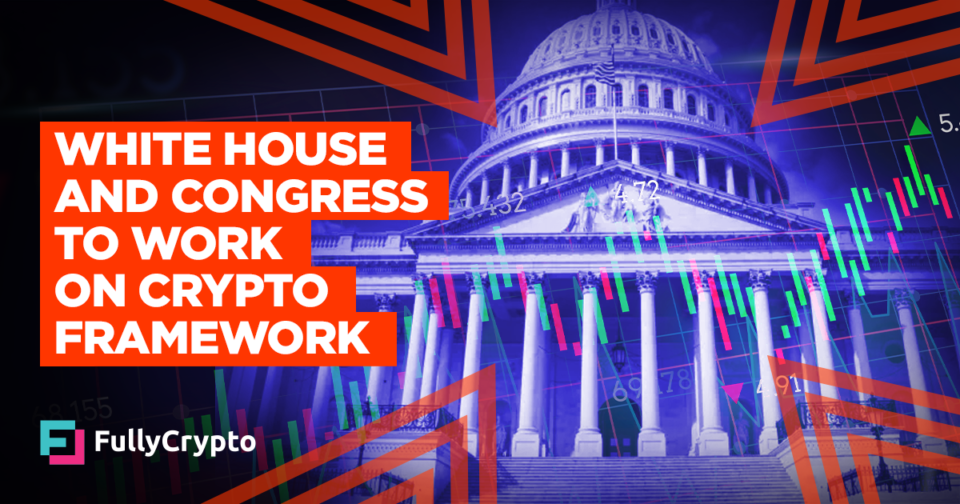By Mark Hunter
8 hours agoThu May 23 2024 07:14:11
Reading Time: 2 minutes
- The Biden administration has expressed eagerness to collaborate with Congress on a cryptocurrency framework
- The White House has opposed the Financial Innovation and Technology for the 21st Century (FIT21) bill in its current form, but is open to dialogue
- This represents the first positive response from the Democratic government regarding cryptocurrency regulation
The Biden administration has said that it wants to work with Congress over a cryptocurrency framework, despite opposing the passage of a bill that would affect the regulatory structure for digital assets in the United States. In a statement released yesterday, the White House said it was opposed to the Financial Innovation and Technology for the 21st Century (FIT21) but that it was “eager” to work with legislators to come up with a solution that satisfied all parties. This represents the first positive sounds from the Democratic government surrounding the crypto landscape and bodes well for future discussions on the matter.
FIT21 Calls for Spilt Power
FIT21 was tabled in July 2023 by U.S. Representative Glenn Thompson and, in board terms, called for the Commodity Futures Trading Commission (CFTC) to “regulate a digital asset as a commodity if the blockchain, or digital ledger, on which it runs is functional and decentralized” while the Securities and Exchange Commission (SEC) should “regulate a digital asset as a security if its associated blockchain is functional but not decentralized.”
The White House responded to the bill yesterday, striking a tone that the crypto world has rightly seen as upbeat:
The Administration opposes the passage of [FIT21], which would affect the regulatory structure for digital assets in the United States. The Administration is eager to work with Congress to ensure a comprehensive and balanced regulatory framework for digital assets, building on existing authorities, which will promote the responsible development of digital assets and payment innovation and help reinforce United States leadership in the global financial system. [FIT21] in its current form lacks sufficient protections for consumers and investors who engage in certain digital asset transactions. The Administration looks forward to continued collaboration with Congress on developing legislation for digital assets that includes adequate guardrails for consumers and investors while creating the conditions needed for innovation, and further time will be needed for such collaboration.
This is a very different approach compared to the tone adopted by other prominent Democrats, such as the ‘crypto army’-forming Elizabeth Warren and ‘mongoosecoin’ Brad Sherman.
Big Step Forward
While FIT21 doesn’t have the backing of the White House, it does have the backing of the House of Representatives; yesterday the House voted 279-136 in its favor, a vote that saw Democrats crossing party lines to support it. The bill will now move forward to the Senate where it is likely to fail, but many consider the point to be made:
Today’s FIT21 vote is a huge political moment for crypto.
The SEC is lobbying Congress to vote no. Every “yes” vote sends a strong message to the White House that it’s time to end this anti-crypto insanity.
Call your rep this morning and say “vote yes”:https://t.co/bFss0QVxvZ
— Jake Chervinsky (@jchervinsky) May 22, 2024
The passage of FIT 21 proves there is strong, bipartisan support in Congress for creating a regulatory framework for the crypto industry.
Congratulations @PatrickMcHenry, @CongressmanGT, @RepFrenchHill, @RepDustyJohnson, @GOPMajorityWhip& @WarrenDavidson on this momentous vote.
— Senator Cynthia Lummis (@SenLummis) May 22, 2024
Even if FIT21 fails, as many expect it will, it’s clear that there is a gathering groundswell of opinion that crypto and blockchain are things to be embraced rather than feared and outlawed.



